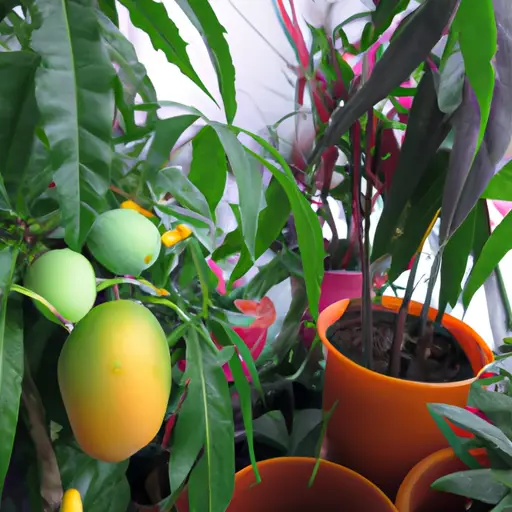Growing Exotic Fruits in Containers: An Exciting Adventure Awaits!
Imagine plucking a juicy, perfectly ripe mango straight from a tree in your own backyard. Picture indulging in the sweet taste of a homegrown papaya or relishing the tanginess of fresh passion fruit. The idea of growing exotic fruits may seem like a distant dream for some, especially those with limited space and resources. However, thanks to the wonders of container gardening, this exhilarating adventure can become a reality!
Container gardening is an excellent option for people who have small yards, balconies, or even just a sunny window sill. It offers the opportunity to cultivate a wide variety of plants, including exotic fruits that thrive in controlled environments. Not only does it allow you to experience the joys of growing your own food, but it also adds a unique touch to your home décor.
One of the most thrilling aspects of growing exotic fruits in containers is the vast array of options available. From bananas and guavas to dragon fruits and kumquats, there is no shortage of exciting choices. Each fruit brings its own distinct flavor profile and nutritional benefits to the table, making every harvest something special.
To embark on this adventure, start by selecting fruits that are well-suited for container cultivation. Some popular choices include citrus fruits like lemons and oranges which are often easy to grow and require minimal space. Pineapples make fantastic container plants as well since they have shallow root systems and add tropical charm to any setting.
For those looking for something truly exotic, consider trying your hand at growing papayas or figs. These fruits not only taste fantastic but also add an air of sophistication with their unique shapes and colors. If you’re feeling particularly ambitious, attempting to grow rare finds like passion fruit or starfruit can provide an added sense of accomplishment.
Container gardening for exotic fruit cultivation requires attention to certain key factors:
1. Container selection: Ensure your containers have sufficient drainage holes and are large enough to accommodate the root systems of your chosen fruits. Opt for lightweight containers made of materials like plastic or fiberglass to make maneuvering them easier.
2. Soil and fertilizer: Use high-quality potting soil that provides good drainage and aeration for healthy root development. Organic fertilizers specifically formulated for fruiting plants are recommended to promote optimal growth and fruit production.
3. Sunlight and temperature requirements: Most exotic fruits thrive in warm, sunny environments. Place your containers in areas that receive at least 6-8 hours of direct sunlight daily, such as on south-facing balconies or near windows.
4. Watering and maintenance: Ensure proper watering by regularly checking the moisture level of the soil. Exotic fruits generally prefer consistently moist but not waterlogged conditions. Pruning, staking, and providing support when necessary will help maintain the health and shape of your plants.
5. Pest control: Keep a close eye on your plants for any signs of pests or diseases, as container plants can be more susceptible to such issues due to limited natural defenses. Take proactive measures like using organic pest control methods or introducing beneficial insects to combat any problems that may arise.
As your journey into growing exotic fruits in containers progresses, you’ll witness the captivating sight of delicate flowers transforming into delectable treats right before your eyes. The sense of accomplishment derived from nurturing these plants from seedlings to fruitful maturity is unparalleled.
Whether you’re a seasoned gardener looking for new challenges or someone with a budding green thumb eager to explore the world of exotic fruits, container gardening offers an exhilarating adventure awaiting discovery. So gather your favorite pots, select your desired fruits, and let this exciting journey begin!













